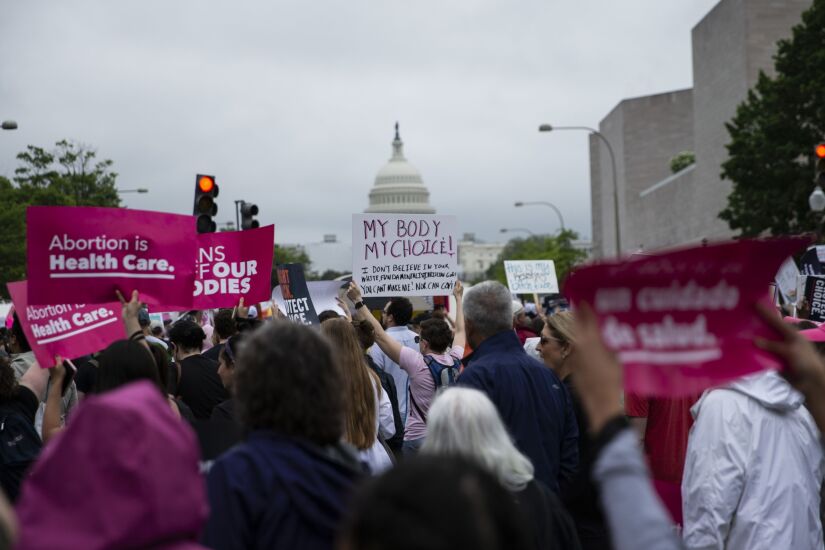The Supreme Court overturned Roe v. Wade on Friday, ending a decades-long constitutional protection to the right to an abortion for millions of people in the United States.
The ruling will end federal protection for abortion, and give states the power to determine the legality of the procedure. Currently, three states — South Dakota, Louisiana and Kentucky — have laws that immediately ban abortion unless necessary to save a
Well before this decision, many companies expressed support and planned action for employees working in states that could be affected. Amazon announced it will pay up to $4,000 in travel costs for employees seeking non-life-threatening medical care, which does not specify abortion but will cover the procedure. Dating sites Match and Bumble have also started relief funds for those needing financial support in order to access abortion coverage.
Read more:
“Looking at abortion care, reproductive rights and
Read more of our recent coverage on this issue and how you can support all employees with






